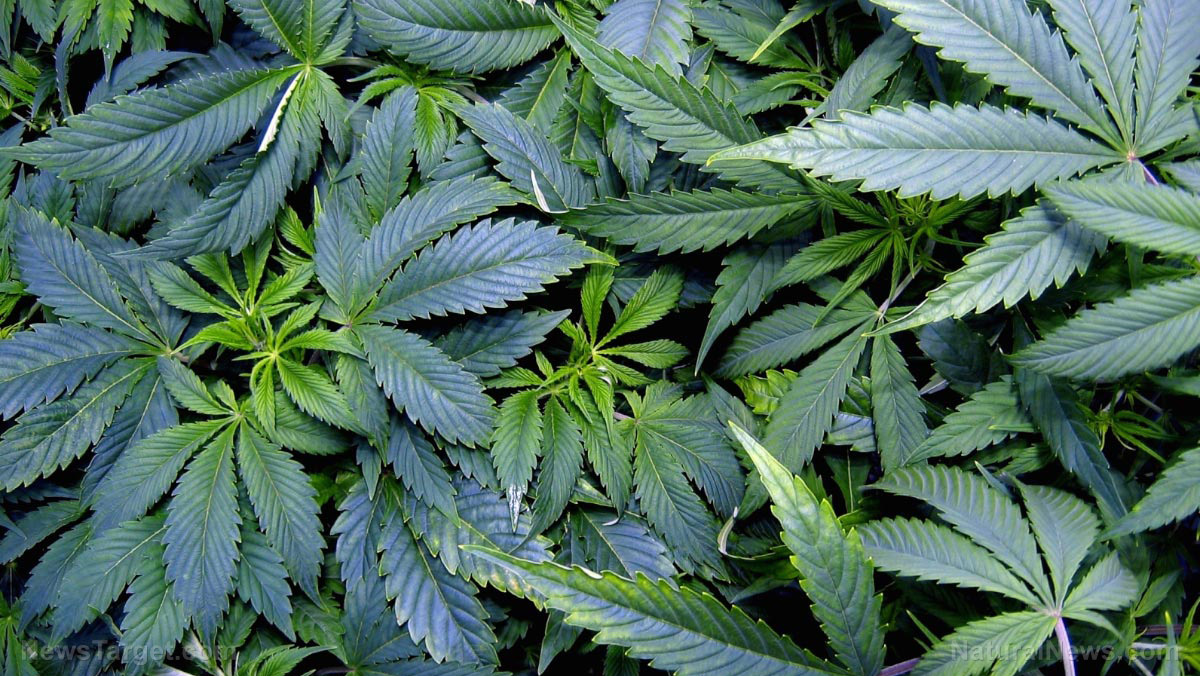Cannabis more effective than prescriptions: Seventy-year-old grandmother threw out all her pills, says smoking cannabis manages her ailments
01/03/2018 / By Russel Davis

Vancouver resident Carol Francey, 70, attributed cannabis use of more than five decades to her excellent health today. According to Francey, she smoked cannabis to alleviate various conditions such as arthritis, sciatica, and insomnia. Francey added that her previous medications used to affect her balance and slurred her speech. However, the use of various forms of cannabis proved helpful in relieving her conditions without the unwanted side effects from her medications.
“I threw away all my pills. They had slurred my speech and affected my balance. Now [I have] a little concentrated oil which relaxes, soothes, repairs, and prevents illnesses. A hot coffee with a toasty cannabis tincture works well for arthritis, pain, and sleep. [I’ll inhale] a dab for sciatica and I’m after that I can walk…We need to help older people have a better quality of life. Cannabis helps you to overcome anxiety about day-to-day life and stop sweating the small stuff,” Francey said in a Daily Mail article.
Francey first started using cannabis at the age of 17, but did not disclose it publicly for fears of social stigma, and how the activity would affect her reputation as a former drugs and alcohol counselor. The grandmother campaigned for cannabis legislation in the country with the group Grannies for Grass International, and is encouraging other cannabis users to come out in the open.
Francey’s and the group’s efforts did not land on deaf ears as Canada plans to legalize recreational cannabis use in July this year. So far, 29 U.S. states have legalized marijuana for medical use. Seven of these states also allowed recreational cannabis use.
Analysis demonstrates that cannabis relieves anxiety, depression
A vast number of studies have demonstrated the many beneficial effects of cannabis use. For instance, a comprehensive meta-analysis published in the journal Clinical Psychology Review revealed that taking medical cannabis is beneficial for the treatment of symptoms linked to post-traumatic stress disorder (PTSD), social anxiety, and depression. (Related: Medical cannabis use found to dramatically decrease reliance on addictive prescription medications)
A team of researchers examined 31 studies as part of the review and found that the cannabidiol compound in cannabis contained potent antidepressant and anti-anxiety effects. Likewise, the compound helped inhibit continuous retrieval of a traumatic event in patients with PTSD. The compound was also known to relieve stress and anxiety in PTSD patients. Moreover, cannabidiol was found to outperform opiates in keeping alcohol- and opioid-dependent patients off their addictions.
“We are really excited about the potential substitution effect. If people use cannabis as a replacement for opioid medications, or to get off of opioids or cut back, we could see some pretty dramatic public health benefits. The level of opioid overdoses is so high right now. I think people will derive more benefits if they can speak more openly with providers about whether they are using cannabis and why,” lead researcher Zach Walsh told Medical Marijuana, Inc. News online.
Another study proves cannabis helps alleviate chronic pain
A study published last year revealed that medical cannabis use effectively eases inflammation, swelling, tension, and sore muscles. A team of Canadian health experts have examined 215 adult chronic pain patients as part of the study. The patients were given flowers, concentrates, or edible cannabis during the study’s duration. The results were then compared with a control cohort of 216 healthy patients.
Patients who took medicinal cannabis exhibited significant declines in pain and increased quality of life, the researchers reported. Likewise, patients in the cannabis group attained mark reductions in anxiety, depression, and fatigue. The research team concluded that cannabis not only alleviates physical pain, but also relieves pain of psychological nature.
Sources include:
Tagged Under: cannabis, cannabis use, herbal medicine, marijuana, medical marijuana, medicinal cannabis, natural medicine, natural remedies, smoking cannabis



















